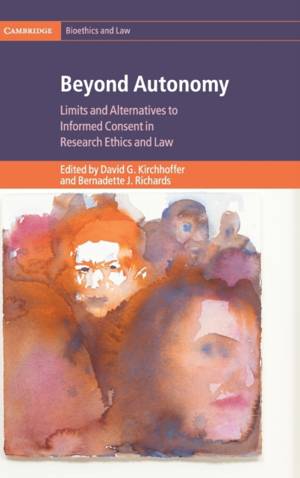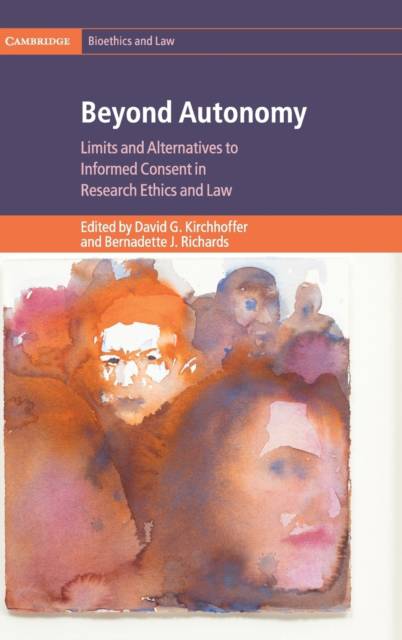
- Afhalen na 1 uur in een winkel met voorraad
- Gratis thuislevering in België vanaf € 30
- Ruim aanbod met 7 miljoen producten
- Afhalen na 1 uur in een winkel met voorraad
- Gratis thuislevering in België vanaf € 30
- Ruim aanbod met 7 miljoen producten
Zoeken
Beyond Autonomy
Limits and Alternatives to Informed Consent in Research Ethics and Law
€ 139,95
+ 279 punten
Omschrijving
Respect for autonomy has become a fundamental principle in human research ethics. Nonetheless, this principle and the associated process of obtaining informed consent do have limitations. This can lead to some groups, many of them vulnerable, being left understudied. This book considers these limitations and contributes through legal and philosophical analyses to the search for viable approaches to human research ethics. It explores the limitations of respect for autonomy and informed consent both in law and through the examination of cases where autonomy is lacking (infants), diminished (addicts), and compromised (low socio-economic status). It examines alternative and complementary concepts to overcome the limits of respect for autonomy, including beneficence, dignity, virtue, solidarity, non-exploitation, vulnerability and self-ownership. It takes seriously the importance of human relationality and community in qualifying, tempering and complementing autonomy to achieve the ultimate end of human research - the good of humankind.
Specificaties
Betrokkenen
- Uitgeverij:
Inhoud
- Aantal bladzijden:
- 226
- Taal:
- Engels
- Reeks:
Eigenschappen
- Productcode (EAN):
- 9781108491907
- Verschijningsdatum:
- 21/11/2019
- Uitvoering:
- Hardcover
- Formaat:
- Genaaid
- Afmetingen:
- 165 mm x 239 mm
- Gewicht:
- 453 g

Alleen bij Standaard Boekhandel
+ 279 punten op je klantenkaart van Standaard Boekhandel
Beoordelingen
We publiceren alleen reviews die voldoen aan de voorwaarden voor reviews. Bekijk onze voorwaarden voor reviews.










